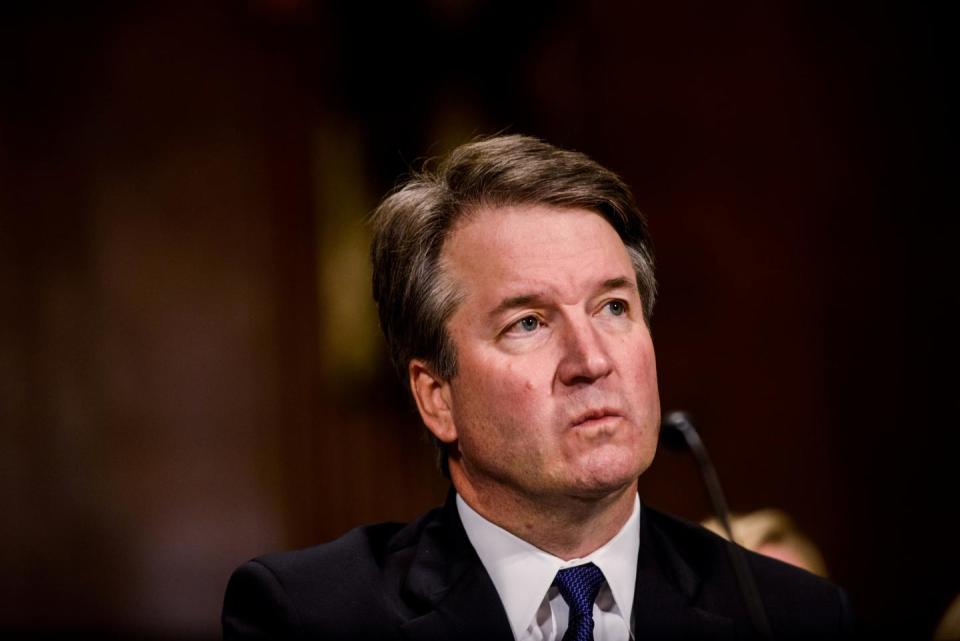Why a Facebook executive's appearance at the Kavanaugh hearing was a big mistake

When Facebook (FB) vice president of global public policy Joel Kaplan made a show of support for Brett Kavanaugh at the Supreme Court justice’s Senate hearing in late September, the executive broke one of the cardinal rules of business branding.
“If you’re a strong brand, never get involved with the Holy Trinity: sex, religion, and politics,” explains Russell Quinan, chief strategy officer for Theory SF, a branding agency in San Francisco.
Kaplan, a lifelong friend of Kavanaugh’s, appeared at the judge’s testimony in late September, which was part of a Senate hearing to review the allegations from Dr. Christine Blasey Ford, a college professor and research psychologist, who claimed he sexually assaulted her during a high school party. (Two other women also emerged with sexual misconduct allegations against Kavanaugh from the 1980s.)
Kaplan’s appearance at Kavanaugh’s hearing was not only unprecedented for the social network — it sparked an internal revolt at Facebook. According to reports from The New York Times and NBC News, hundreds of Facebook employees voiced concerns via email and on internal message boards over Kaplan’s move.
The internal fracas spurred Mark Zuckerberg to hold an internal town hall on Friday to help assuage employee concerns. Zuckerberg reportedly defended Kaplan’s appearance as a personal decision that didn’t violate company rules. But two people at the meeting also told The New York Times that Zuckerberg said he wouldn’t have chosen to attend the hearing himself.
‘He wasn’t thinking about his role in the company’
Equally as bad for the social network, however, are the “optics” of the situation, or how Kaplan’s support makes the social network look. Because Kaplan is a high-level Facebook executive — one originally hired to help bring a conservative perspective to the social network — his personal endorsement of the embattled Supreme Court justice and Republican party member appeared tantamount to a wider Facebook endorsement.
“He [Kaplan] shouldn’t have been there in such a public position,” argues Dean Crutchfield, CEO of the New York brand consulting firm Crutchfield & Partners. “He wasn’t thinking about his role in the company. This goes against what real leadership is about. Is this the face of Facebook? Does this define who Facebook is?”
Omar Akhtar, an industry analyst for the San Francisco-based Altimeter Group, echoes Crutchfield, suggesting Facebook should have tighter reigns over its executives and public appearances.
“This is something Facebook should have been much savvier about,” explains Akhtar. “Kaplan didn’t break any rules and is entitled to his political opinion, but the presence of a senior executive and Facebook’s top government liaison in Washington by the side of Kavanaugh is guaranteed to reflect on the company’s political position as a whole. … You’d think Facebook PR would be extra sensitive to any optics that imply partisanship, and Facebook’s employees are rightly entitled to object to the actions of one person implying the opinions of a whole group.”
Kaplan’s support for any partisan candidate is tricky enough, but publicly supporting Kavanaugh is even more controversial for Facebook given the sexual assault accusations lodged against Kavanaugh, who was confirmed by the Senate and sworn in as the 114th Supreme Court Justice on Saturday.
High stakes for the social network
There’s a lot at stake for Facebook, which has 2.23 billion monthly users who could feel politically alienated and less likely to engage with the social network. That’s dangerous for a publicly-traded company like Facebook whose users are its lifeblood. It should also be a serious concern for the social network given some Facebook users have ratcheted down their engagement with the social network since the Cambridge Analytica scandal broke in March.
According to data published by the Pew Research Center this September, 42% of users surveyed have taken a break from Facebook for several weeks or more, adjusted their privacy settings or deleted the Facebook app entirely from their smartphones since March.
“Is [Kaplan’s appearance] worth it at the end of the day?” Quinan wonders. “Facebook lives and dies by the size of its platform. Further reduction in usage is kind of dangerous.”
More from JP:
